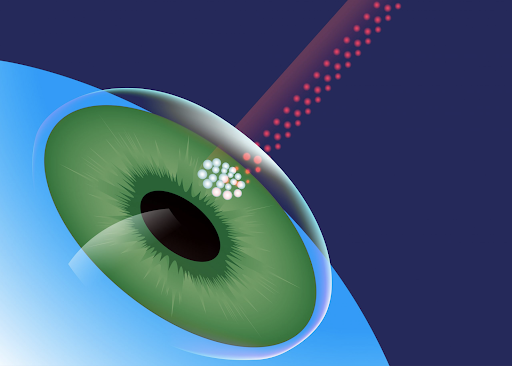While LASIK is a safe and effective procedure, taking proper care before and after the surgery is important to ensure the best possible outcome. Here are some things to keep in mind before and after LASIK surgery:
While LASIK is a safe and effective procedure, taking proper care before and after the surgery is important to ensure the best possible outcome. Here are some things to keep in mind before and after LASIK surgery:
Before the Surgery:
Consult with an ophthalmologist: Before undergoing LASIK surgery from best hospital: https://www.visualaidscentre.com/lasik-hospital-in-delhi/, you must consult with an ophthalmologist to determine if you are a good candidate for the surgery. They will evaluate your vision and overall eye health to ensure that you are a good candidate for the procedure.
Follow the pre-surgery instructions: Your surgeon will provide detailed instructions on preparing for the surgery. To make sure we get the best possible outcome from the surgery, it is important that we follow all of the instructions very carefully. This may include stopping certain medications, avoiding certain foods or activities, and preparing for surgery.
Understand the risks and benefits: Before undergoing LASIK surgery, it’s important to understand the risks and benefits of the procedure. Your surgeon will provide detailed information about the risks and benefits of the surgery and will answer any questions you may have.
During the Surgery:
Follow the post-surgery instructions: After the surgery, it’s important to follow the post-surgery instructions provided by your surgeon. This may include taking certain medications, using eye drops, and avoiding certain activities or foods.
Take it easy: It’s important to take it easy after LASIK surgery. It will help if you avoid strenuous activities, such as sports or heavy lifting, for at least a week or two after the surgery.
Follow-up appointments: It’s important to schedule follow-up appointments with your surgeon to ensure that your eyes are healing properly and that the desired results have been achieved.
Be patient: LASIK is a safe and effective procedure, but it can take time for your vision to improve fully. It’s important to be patient and follow your surgeon’s instructions to ensure the best possible outcome.
Wear protective gear: Your surgeon may advise you to wear protective gear for certain sports, swimming, and other activities to protect the eyes from trauma.
After the Surgery:
Protect your eyes: After LASIK, your eyes will be more sensitive to light and dust. It’s important to protect your eyes by wearing sunglasses when you’re outside and avoiding dusty or windy conditions.
Use eye drops: Your surgeon may prescribe eye drops to help heal and prevent infection. It’s important to use the eye drops as directed and to avoid touching your eyes with dirty hands.
Avoid rubbing your eyes: After LASIK, it’s important to avoid rubbing your eyes, as this can cause irritation and delay healing if you need to rub your eyes gently and only with clean hands.
In conclusion, LASIK is a safe and effective procedure that can significantly benefit people with vision problems. However, taking proper care before and after the surgery is important to ensure the best possible outcome. This includes consulting with an ophthalmologist following pre and post-surgery
Consumption of alcohol, in general
Drinking alcohol can be a great way to relax and enjoy time with friends and family. However, it’s important to do so in moderation and to be aware of the potential risks. Consuming alcohol in moderate amounts can even be beneficial for health. For example, studies have shown that moderate drinking can lower the risk of heart disease, stroke, and certain types of cancer. It can also improve cognitive function and reduce the risk of depression and anxiety.
When it comes to the consumption of alcohol, doing it moderately is the way to go. According to the U.S. Dietary Guidelines for Americans, the moderate amount of alcohol per day for men is two drinks, and in the case of women, it’s one drink.
When it comes to drinking alcohol, it’s important to be aware of your limits and to drink responsibly. This means drinking in moderation, not driving or operating heavy machinery after drinking, and not drinking to the point of getting drunk. It’s also important to be aware of the risks of drinking alcohol while taking certain medications. Some medications can negatively interact with alcohol, so it’s important to talk to your doctor or pharmacist about potential interactions.
Additionally, drinking alcohol can negatively impact recovery after a surgery like LASIK, as alcohol can cause dry eyes, a common side effect of the surgery. It’s important to wait for at least a week or two after the surgery before drinking alcohol to ensure that the eyes have fully healed and are not still sensitive.
In conclusion, drinking alcohol can be a great way to relax and enjoy time with friends and family. However, it’s important to do so in moderation and to be aware of the potential risks. Moderation is key in alcohol consumption, and it’s important to be aware of your limits and to drink responsibly. Additionally, it’s important to know the potential interactions between alcohol and certain medications and the risks of drinking alcohol while recovering from a surgery like LASIK.
Drinking after LASIK Surgery
One of the common questions that many people have after LASIK surgery is whether or not it’s okay to drink alcohol. The short answer is that it’s generally okay to drink alcohol after LASIK surgery, but there are certain factors to consider before doing so.
After LASIK surgery, the eyes are typically sensitive for some time. It’s important to wait for at least a week or two after the surgery before drinking alcohol to ensure that the eyes have fully healed and are not still sensitive.
It’s also important to keep in mind that alcohol can cause dehydration. Dehydration can cause dry eyes, a common side effect of LASIK surgery. Therefore, it’s important to drink enough water while consuming alcohol to stay hydrated. Additionally, it’s important to be aware that alcohol can cause dizziness.

